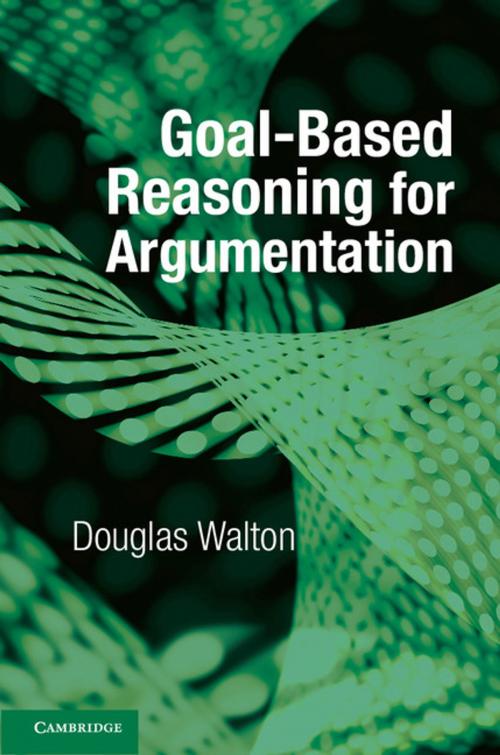Goal-based Reasoning for Argumentation
Nonfiction, Computers, Advanced Computing, Natural Language Processing, Science & Nature, Mathematics, General Computing| Author: | Douglas Walton | ISBN: | 9781316394106 |
| Publisher: | Cambridge University Press | Publication: | August 25, 2015 |
| Imprint: | Cambridge University Press | Language: | English |
| Author: | Douglas Walton |
| ISBN: | 9781316394106 |
| Publisher: | Cambridge University Press |
| Publication: | August 25, 2015 |
| Imprint: | Cambridge University Press |
| Language: | English |
This book provides an argumentation model for means end-reasoning, a distinctive type of reasoning used for problem-solving and decision-making. Means end-reasoning is modelled as goal-directed argumentation from an agent's goals and known circumstances, and from an action selected as a means, to a decision to carry out the action. Goal-based Reasoning for Argumentation provides an argumentation model of this kind of reasoning showing how it is employed in settings of intelligent deliberation where agents try to collectively arrive at a conclusion on what they should do to move forward in a set of circumstances. The book explains how this argumentation model can help build more realistic computational systems of deliberation and decision-making, and shows how such systems can be applied to solve problems posed by goal-based reasoning in numerous fields, from social psychology and sociology, to law, political science, anthropology, cognitive science, artificial intelligence, multi-agent systems, and robotics.
This book provides an argumentation model for means end-reasoning, a distinctive type of reasoning used for problem-solving and decision-making. Means end-reasoning is modelled as goal-directed argumentation from an agent's goals and known circumstances, and from an action selected as a means, to a decision to carry out the action. Goal-based Reasoning for Argumentation provides an argumentation model of this kind of reasoning showing how it is employed in settings of intelligent deliberation where agents try to collectively arrive at a conclusion on what they should do to move forward in a set of circumstances. The book explains how this argumentation model can help build more realistic computational systems of deliberation and decision-making, and shows how such systems can be applied to solve problems posed by goal-based reasoning in numerous fields, from social psychology and sociology, to law, political science, anthropology, cognitive science, artificial intelligence, multi-agent systems, and robotics.















